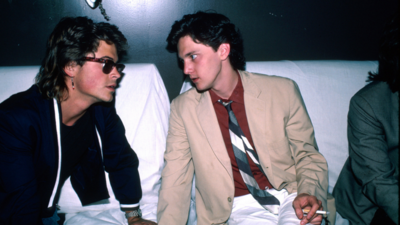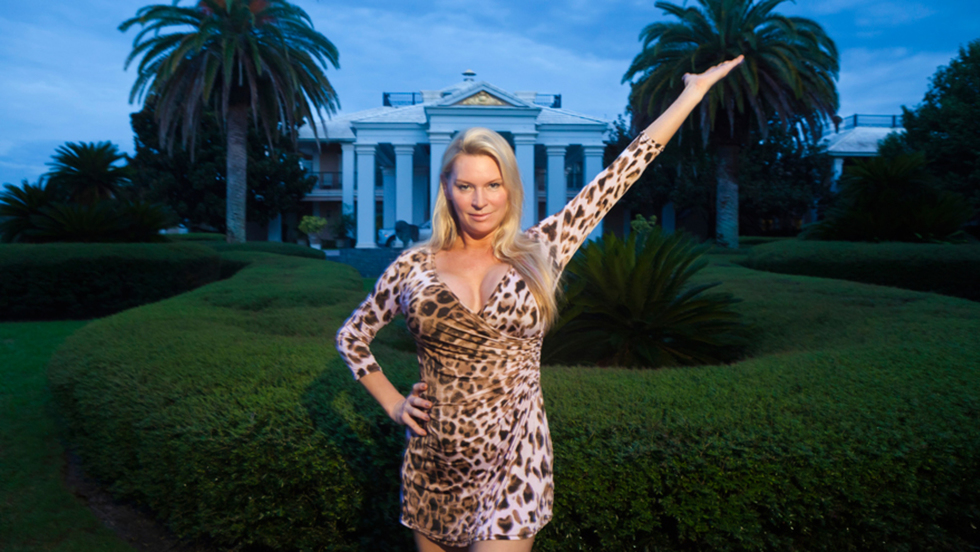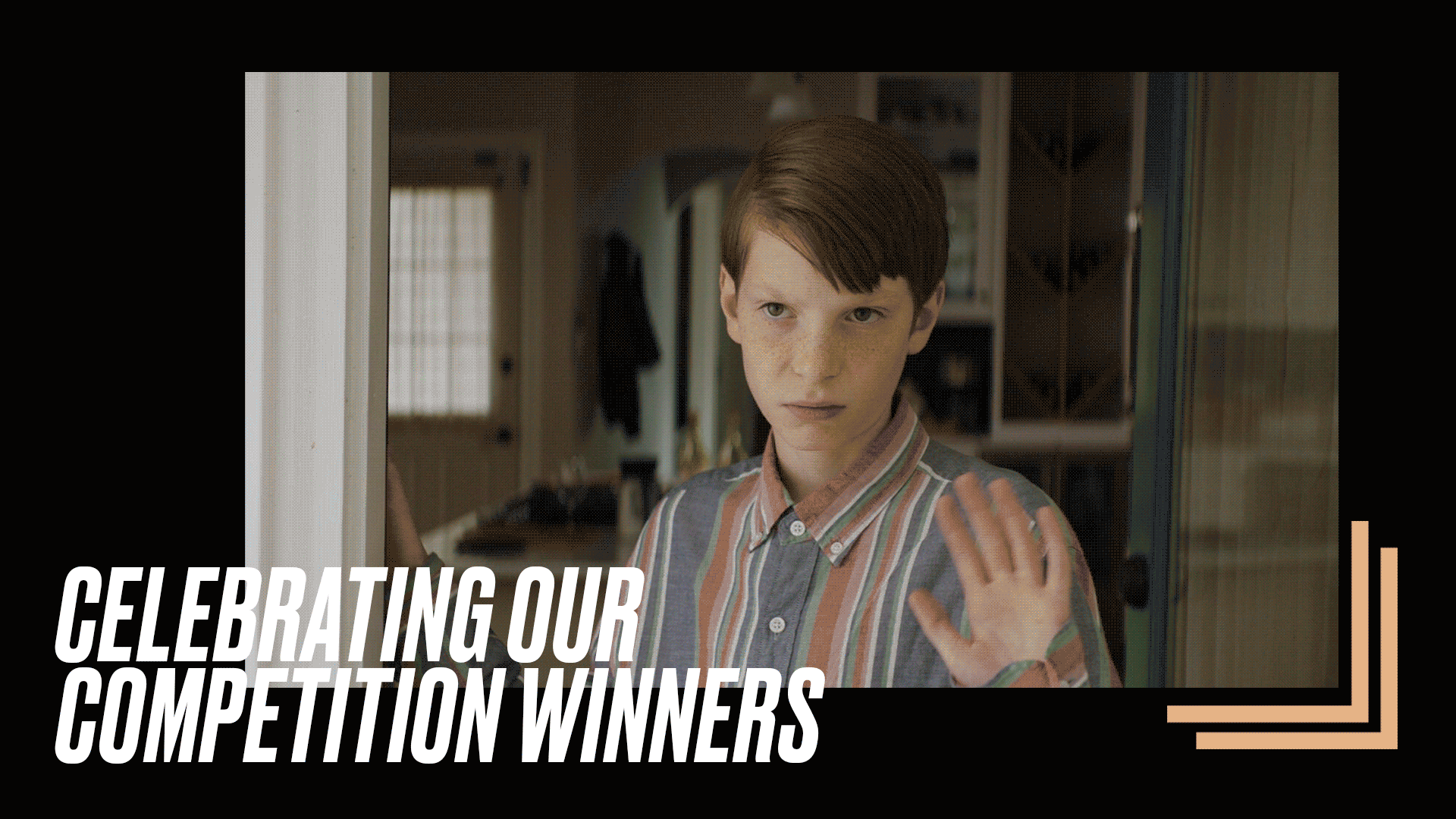
BY KAREN KEMMERLE |
Lauren Greenfield on How "The Queen of Versailles" Went From Versace to Walmart
Photographer-turned-director Lauren Greenfield discusses her buzzed-about feature debut, which chronicles the overreaching of America, as told through the lens of the wealthy Siegel family. We promise: you will watch with dropped jaw.

The Queen of Versailles, the startling documentary that was the hit of the Sundance Film Festival, chronicles a turbulent year in the lives of Jackie and David Siegel, a billionaire couple who initially seem to embody the American Dream. Director Lauren Greenfield and her crew at first followed the Siegels because they were building the most expensive home in America (with a $100 million price tag), aptly named “Versailles.” The project took a dramatic turn when, during the 2008 filming, the stock market crashed and the Siegels, like many other Americans, were forced to swiftly change their lifestyle or face financial ruin.
Granted unprecedented access, the documentary team captures the highs and lows of this billionaire family as they adapt to their dire circumstances. Greenfield (TFF 2012, Beauty Culture) recently sat down with us to discuss the fascinating Siegels and the era of excess.
Tribeca: Your first meeting with Jackie occurred at the opening of Donatella Versace’s Beverly Hills store. Could you tell me what drew you to her exactly?
Lauren Greenfield: First of all, she is incredible-looking. When I went to her hometown in Binghamton, I talked to her boss from a diner that she had worked in, and he said that even when she was working there just out of high school, people come in just to see her. They would not care if their food was hot or cold or even if they ever got it. He said that she could stop cars by just walking down the street. She’s really tall and beautiful, but, at the same time, she has this really charismatic, warm personality. All of those things drew me to her.
I think because of her humble origins, or perhaps it is just her personality, Jackie was open in a way that most rich people are not. In most cases, the super rich have almost a protective veil that comes with wealth, and she was not like that.
TRIBECA: You initially went to her home to photograph her. At what point in your relationship did you broach the possibility of making a documentary about her?
LAUREN GREENFIELD: I took pictures and I did an interview with her the first trip, and then afterwards, I had the realization, “This is a film.” At that point I went back to her and her husband, David, and asked if we could turn the project into a documentary. At the time, they were building the biggest house in America and that is what I pitched to them as the focus of the film.
Also, I think they were both aware that they are unique characters. Jackie has this wonderful quality of being very comfortable in front of the camera, so making her the center of a film was not a stretch. Plus, the whole family was so used to non-family members being part of the house—caterers, landscapers, nannies—that it really didn’t faze anyone.

TRIBECA: I recently watched your short film that was shown at the 2012 Tribeca Film Festival, Beauty Culture. It deals with women’s perceptions of what they should look like based on social pressures and the media’s influence. You previously explored this topic in another documentary, Thin. In The Queen of Versailles, you film Jackie getting a chemical peel and going through other self-improvement procedures. Were you conscious of these recurring themes in your work?
LAUREN GREENFIELD: In a weird way, this movie brings together everything I’ve ever worked on. The process of making it was a challenge: it was an independent film, and it was by hook or by crook every time we would shoot. Jackie is a former beauty queen with a billionaire husband 30 years her senior, so you come in with preconceived notions about her. You assume she is a bimbo or a trophy wife, but these stereotypes are shattered when you discover that she’s actually an engineer who’s very much in control of her choices. You assume that she married for money, and then you realize that she really loves David. In a way, Jackie both shatters and confirms the stereotypes simultaneously.
To complicate matters, Jackie is facing the inevitable battle with aging that all women face. This is especially difficult for Jackie, because so much of her self-worth has been centered on her beauty.
I was really intrigued by a woman who earned an engineering degree from RIT at a time when there were very few women in that field. I went and met with one of her professors who remembered her because she was so unusual. She then decided that her beauty would get her farther than her engineering degree, and she was right, in a way. She had worked at IBM in Binghamton, and those offices are now closed and the town is depressed. So for me it is interesting to look at the culture that offers a woman more opportunities because of her looks than because of her intelligence.
TRIBECA: Jackie is such an enigma. She embraced her lavish lifestyle wholeheartedly, but constantly claimed that she did not care about wealth. She still took her kids to McDonald’s and shopped at outlet malls, but at the same time, she obviously came to expect the perks that come along with being rich. One of the big moments in the movie for me was when she rents a car and then asks, “Where’s my driver?” What do you think these contradictions ultimately say about her?
LAUREN GREENFIELD: These contradictions are what drew me to Jackie in the first place. She had this ability to go seamlessly from McDonald’s hamburgers to caviar, from Versace to Walmart—and that was when she was a billionaire. I think her adaptability served her well when things got tough, because it wasn’t like she was going to Walmart for the first time. To me those contradictions, or maybe it’s just opposites living side by side, are very American. In a way, that’s why the Siegels’ story is so compelling. There’s this high brow-low brow opposition that happens with Jackie, as you can see from the remarkable mix of furniture that she chooses for the mansion.

TRIBECA: Jackie and David are appealing because, for all their wealth, they seem to remain nice people. They even let people drive their Rolls-Royce for special occasions like weddings.
LAUREN GREENFIELD: Right, but they did charge for it [laughs]. The other thing that drew me to them, along the same lines, is that they don’t follow traditional social hierarchies. Jackie treats their employees like family. Of course, they work for her and they do what she says, but she jokes with them and shares her life without pretensions. Jackie does not care about political correctness at all—she is a very free spirit. In a way she exhibits everything that is admirable and deplorable about the state of American values.
TRIBECA: The documentary starts with an exploration of excess and extravagance but takes a very different turn as the economic collapse occurs. How did you work with your team to develop that narrative?
LAUREN GREENFIELD: In the field, it happened very naturally, because once the Siegels put their house on the market, it was clear that their fortune was in jeopardy. There was a lot of tension during filming; we could tell that they were under a lot of stress and strain. I think the big thing was that they allowed us to continue filming, and I always felt very privileged and grateful for that.
At first, we were just capturing things as they happened, and early on I didn’t even know that David’s business was timeshare. Eventually, the nature of his failing business became very important because timeshare was an amazing symbol of the housing crisis itself. All of these middle-class people had purchased timeshare units to enjoy the feeling of luxury, of having a second home, and in a way they were doing what David did. They dreamed too big, lived beyond their means.
TRIBECA: And at any point did the Siegels ask you to stop filming?
LAUREN GREENFIELD: They were really amazing about the filming. I mean, there were times when David would say, “Don’t film me in here,” or whatever, but he never asked me to stop the project. The very last trip, after David had exhausted all hope for his business, Jackie and Richard both said: “He’s in mourning; he may not do an interview.” And I tried, but he didn’t want to talk to me. That was the first time, and I think it was because he was facing an outcome that he had not expected.
TRIBECA: So like in a Horatio Alger story, David thought that once he had achieved riches, that was that. He didn’t expect to go back to metaphorical “rags.”
LAUREN GREENFIELD: He is really tough, and he always described himself as “the guy who could go into a city and lose his wallet and have nothing and just try to make it work.” I think he liked the idea of that kind of challenge, but he also had a sense of, I think, invulnerability.

TRIBECA: It was a shocking moment in the documentary when he stated: “The kids might have to go college, and they might have to pay for it themselves. We have nothing put aside.”
LAUREN GREENFIELD: That was a real shock. He revealed that around the same time that he put the house on the market. As middle class people, we’re always putting aside money for college because we have to, and most rich people are even more conservative. I included the revelation that his parents would go to Vegas and gamble with their savings because, like them, David, in the end, gambled everything on the belief that his business would continue to grow.
I photographed the FCIC hearings in Washington, and I remember the commissioner asking the heads of all the banks if they had prepared for when the housing prices would go down. They said no. So I don’t think David was alone in assuming that everything would always grow. He was just a true believer in his business.
TRIBECA: In an era of consumerism and greed, there are many lessons that audiences can take away from the film. Are there any specific messages that you wanted to convey?
LAUREN GREENFIELD: For me, The Queen of Versailles is an allegory about the overreaching of America. David, in the end, concludes that we’re all part of the vicious boom and bust cycle. The housing crisis was, in a way, the consequence of our greed and our wanting more and buying more than we could afford.
As a country, we’ve had to recalibrate since then, and that’s maybe a good thing in terms of our values. With Jackie, you see by the end of the film what’s really important to her: her family and her husband. She doesn’t care as much about the house as you thought she did, and that says it all, as far as I’m concerned.
TRIBECA: You might not be able to talk about this due to legal reasons, but were you surprised that David has filed a lawsuit involving the film’s appearance at Sundance?
LAUREN GREENFIELD: I was surprised. It’s still active, so I can’t talk about it.

TRIBECA: What’s your next project?
LAUREN GREENFIELD: My next project is a book called Wealthy Influence of Affluence. It is a photography project on consumerism and the cycle of boom and bust that is actually international. The focus is on the U.S., but also on countries like Dubai and Ireland.
TRIBECA: Will Jackie and David be featured in that at all?
LAUREN GREENFIELD: I’m happy to say that The Queen of Versailles will be a part of it.
The Queen of Versailles opens Friday, July 20, in New York and Los Angeles.
![]() Like The Queen of Versailles on Facebook.
Like The Queen of Versailles on Facebook.
Watch the trailer:

